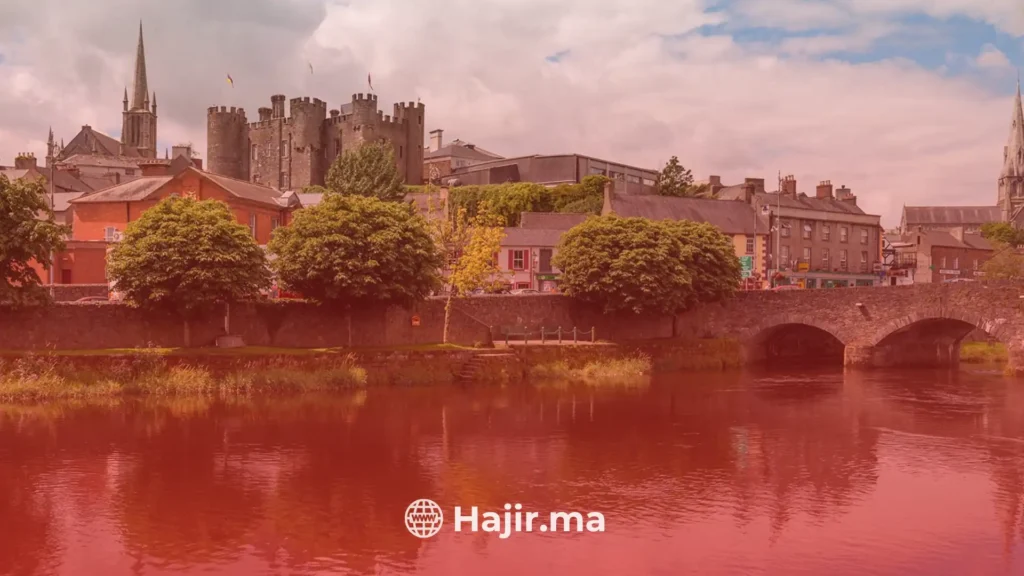Planning a trip to the enchanting Emerald Isle? Whether you’re a tourist, a student, a business professional, or a job seeker, understanding the intricacies of Ireland’s visa policies is crucial. This comprehensive guide will walk you through the various types of Ireland visas, provide step-by-step instructions on how to apply, and answer frequently asked questions.

Understanding the Ireland Visa Policy
If you’re considering a visit to Ireland, understanding the visa policy is essential. Here’s a breakdown based on your nationality:
EU/EEA Nationals
If you’re from an EU or EEA member country, you can visit Ireland for up to three months with just your valid passport or national identity card. No visa is required, and you don’t need to register with immigration authorities upon arrival.
Non-EU/EEA Nationals Exempt from Irish Visas
Certain non-EU/EEA countries have visa-free travel agreements with Ireland. While you don’t need an Irish visa, you must register with immigration authorities at the border control upon arrival. The Immigration Officer will determine your entry eligibility.
Non-EU/EEA Nationals Subject to Irish Visas
If you’re from a non-EU/EEA country that requires an Irish visa, you must follow these steps:
- Obtain an Ireland visa from your home country.
- Register with immigration authorities upon arrival in Ireland.
Remember, having an Ireland visa doesn’t guarantee entry; an Immigration Officer must grant you permission to stay.
Who Needs an Ireland Visa?
Ireland’s EU/EEA membership and visa exemptions cover many nations. However, specific countries may still require a visa for entry. Refer to the official list of countries on Ireland’s visa website.
Types of Ireland Visas
Ireland offers various visa types tailored to the duration and purpose of your stay:
Irish Short-Stay Visas (C Visa)
- Irish Tourist Visa: For tourists exploring Ireland.
- Irish Business Visa: For business-related visits.
- Irish Employment Visa (Atypical Working Scheme): For short-term employment.
- Irish Stage Performance or Tournament Visa: For performing artists and athletes.
- Irish Training Visa: For short-term training courses.
- Irish Short-Term Internship Visa: For paid internships up to three months.
Irish Long-Stay Visas (D Visa)
If your stay in Ireland exceeds three months, you’ll need a long-stay visa. Options include:
- Irish Study Visa: For students in Irish educational institutions.
- Irish Work Visa: For employed foreign nationals.
- Irish Family Visa: For joining family members in Ireland.
- Irish Working Holiday Visa: For eligible countries in a Work Holiday agreement.
- Irish Researcher Visa: For scientific researchers.
- Irish Long-Term Internship Visa: For internships exceeding three months.
- Irish Volunteer Visa: For charitable or voluntary work.
- Irish Minister of Religion Visa: For conducting ceremonies or religious duties.
- Irish Retirement Visa: For self-sufficient retirees.
Irish Transit Visa
Certain nationalities require an Irish Transit visa if changing vessels at an Irish airport or seaport without passing through border control. Check specific requirements on Ireland’s visa website.
Irish Single and Multiple Entry Visas
The number of entries allowed varies with Irish visas:
- Single-Entry Visa: Permits only one entry; re-entry is not allowed.
- Multiple-Entry Visa: Allows multiple entries within the visa’s validity.
Multiple-entry visas are less common and subject to Irish authorities’ discretion, typically issued to frequent travelers.
Ireland Visa Application
Applying for an Ireland visa involves these steps:
Completing the Online Application Form
- Start the application via AVATS, the Irish Online Application facility.
- Provide information about the visa type, purpose of travel, passport details, and travel dates.
- Answer personal questions, including residence details, previous Irish visa applications, criminal history, and more.
- Review and consent to a declaration before submission.
- Print a summary copy of the application.
Submitting the Passport and Documents
After completing the online application, submit:
- The application form
- Your passport
- Supporting documents
- Payment of the visa fee
Submission locations vary by country and can be an Irish embassy, consulate, or visa application center.
Providing Biometrics
Some applicants may need to provide biometric information, like fingerprints and photographs, at the submission location.
Visa processing time averages around eight weeks, but it can vary. Apply well in advance of your travel plans.
Border Control
Upon arrival in Ireland with a valid visa, go through border control. Present your passport, visa, and copies of submitted documents to the Immigration Officer.
What Can I Do In Case of Irish Visa Refusal?
If your Irish visa application is denied, you will receive a refusal letter explaining the decision. You may appeal within two months if eligible:
Submitting an Appeal
- Write a detailed appeal letter, addressing the reasons for refusal.
- Include your transaction number, full name, address, email, and relevant documents.
- Send the appeal to the specified address.
Who Submits the Ireland Visa Refusal Appeal?
- Applicants over 18 can submit their appeal.
- If someone else applies for you, provide them with a letter of authorization.
- For applicants under 18, a parent or legal guardian must submit the appeal without authorization.






